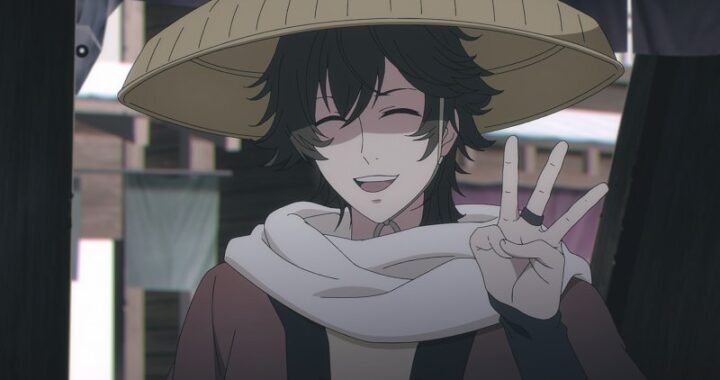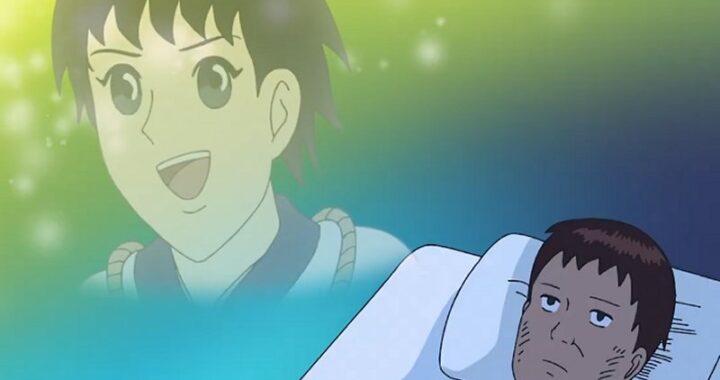 “But it’s from the creator of Genshiken,” I told myself. “Yeah, it doesn’t look that good on the surface, but I’m sure that’s just part of the joke!”
“But it’s from the creator of Genshiken,” I told myself. “Yeah, it doesn’t look that good on the surface, but I’m sure that’s just part of the joke!”
And I was wrong. Oh Lord, was I ever wrong.
Creative Talent
Writer/Artist:Kio Shimoku / Keito Koume
Translated by:David Ury
What They Say
The Genshiken gang has long obsessed over a manga called Kujibiki Unbalance. Now real-world readers can finally see what the fuss is all about!
Content: (please note that content portions of a review may contain spoilers):
I’m sure that a lot of readers are, like myself, coming into Kujibiki Unbalance mainly knowing what it’s about from Shimoku’s previous series, Genshiken. For the people who’re coming into the series cold, here’s a quick recap: Kujibiki first showed up in the Genshiken universe as a fictional anime series-within-a-series which took the otaku world by storm. What made Kujibiki such an effective satire was that it shamelessly melded every anime and manga trope imaginable into a show so terrible, so completely and soul-crushingly stupid, that it was both a loving tribute to the medium and a razor-sharp stab to the heart of everything otakudom held dear. In other words, it was brilliantly unwatchable.
To make a long story short, Kujibiki was eventually adapted into a 3-episode OVA series, which was in turn inspired the 12-episode anime series that this manga was adapted from. And seeing as we’re basically dealing here with a series thrice removed from a metafictional joke, it shouldn’t be much of a shocker that it’s carrying a very … let’s just say … fractured kind of plot along with it. We start off with the protagonist Chihiro starting his first day at Rikkyoin High School, where he’s immediately greeted by the news that he’s become the next class president. You see, Rikkyoin has this policy that all important decisions are made by the titular kujibiki (lottery) system, which has randomly awarded Chihiro and his generic female sidekick Tokino important slots in the school’s ever-powerful student council.
Joining Chihiro and Tokino on the student council are the self-described genius Renko as secretary, her assistant Kaoruko, and the hopelessly reluctant treasurer Koyuki. Koyuki’s nature to hide and pout ends up being the new student council’s first point of contention with the current student administration, who are inexplicably led by Chihiro’s childhood friend Ritsuko Kubel Kettenkrad. Ritsuko tasks Chihiro’s group with doing most of the gruntwork for the school, which ranges from serving lunch to disarming bombs (!) but mostly involves Kujibiki’s female cast taking turns flashing their underwear at the reader.
And then, for some reason, they go to the beach and to a festival. There’s really no train of thought that connects these events to anything else that’s going on in the manga: one of the student council members decides to go to the beach, and then they do, and then suddenly they’re all going to a festival. There’s some stuff mixed in about Renko’s parents wanting her to leave school and something-or-other about “spy hunting” thrown in at the very end, but none of what’s going on makes much sense or has a whole lot to do with anything else going on in the manga.
There’s no point in beating around the bush here: Kujibiki Unbalance is without question the worst manga title I’ve read so far in 2008, and it’s on the shortlist for the worst titles I’ve read in my lifetime. The writing is so disjoint and humorless that it’s hard to tell what angle Shimoku is going for here here. Is Kujibiki an intentionally bad takeoff of manga tropes, an unintentionally stupid romantic comedy, or something inbetween these two extremes?
If Kujibiki is supposed to be a spoof, then its biggest problem is that it borrows from the Epic Movie/Meet the Spartans philosophy of lazy comedy writing that confuses referencing something with actually parodying it. The whole joke seems to be that Shimoku is intentionally constructing a train-wreck of a story by piecing together every manga trope he can think of. No matter how funny this idea sounds in principle — and I’ll admit, on the surface it doesn’t sound too bad — in practice it’s a total disaster. There are no clever riffs or unexpected twists on these clichés like you’d expect out of a good parody; Shimoku just dumps tired plot device after tired plot device on the reader with such a straight face that it’s hard to tell whether it’s even supposed to be a joke at all. Above all, there are no laughs; I might’ve gotten a small smile out of a couple of the zanier character intros, but even that’s pushing it.
But let’s say I’m wrong, that Kujibiki isn’t supposed to be a spoof at all, and that everything in the “plot” is supposed to be taken at face value. If anything, this just makes things worse: it knocked the writing down from well-intentioned-but-bad to just plain bad. There’s very little resembling a coherent narrative in Kujibiki, since the story is constructed mostly by gluing together unrelated bits of pandering fanservice. During the first three chapters alone, Shimoku manages to include: the faceless male protagonist; the school opening ceremony; the all-powerful student council; the childhood friend love interest; the mysterious foreign exchange student; the angry genius character and her giant robot; the disturbingly-close older sister; the ditzy girl with glasses; the useless moé sidekick; the rival school club; the hidden bomb set to blow up at any minute; and probably quite a few other things that I don’t care to remember any more. It’s bad enough to see any one of these things pop up over and over in poorly-written manga series. When someone goes and builds a story out of nothing but these elements, it’s basically unreadable.
In Summary:
I tried really, really hard not to let my preconceptions about the series color my judgment here. Unfortunately, my first impressions (and worst fears) turned out to be right: Kujibiki Unbalance is an awful read from start to finish. While Keito deserves some credit for making Kujibiki look as good as it does, no amount of polish is enough to compensate for the totally dreadful writing here. The only possible appeal I could see this release having is for the gratuitous T&A factor, and let’s be honest … if you’re that hard-pressed for T&A, you’re much better off going with a series that specializes in it.
Content Grade: F
Art Grade: B
Packaging Grade: A-
Text/Translation Grade: B+
Age Rating: 13+
Released By: Del Rey Manga
Release Date: July 22nd, 2008
MSRP: $10.95




